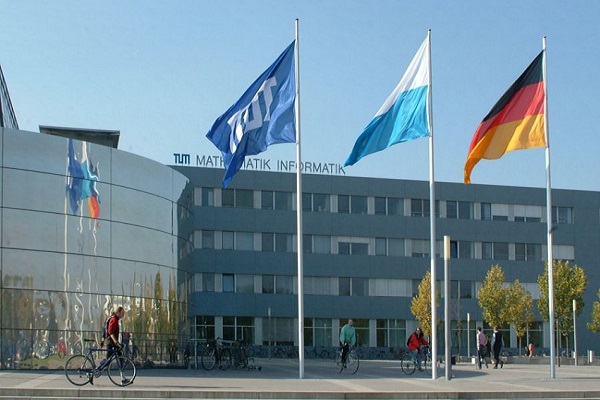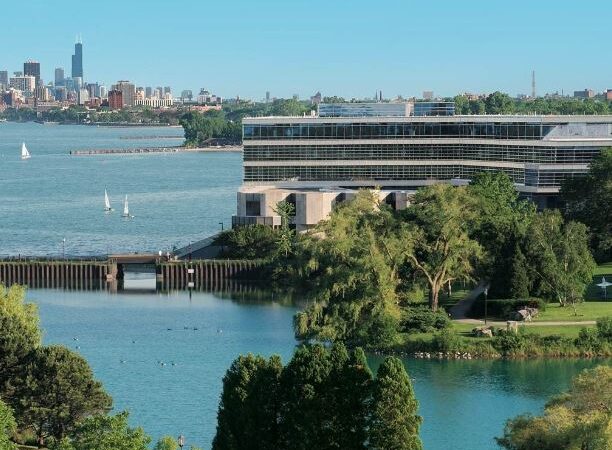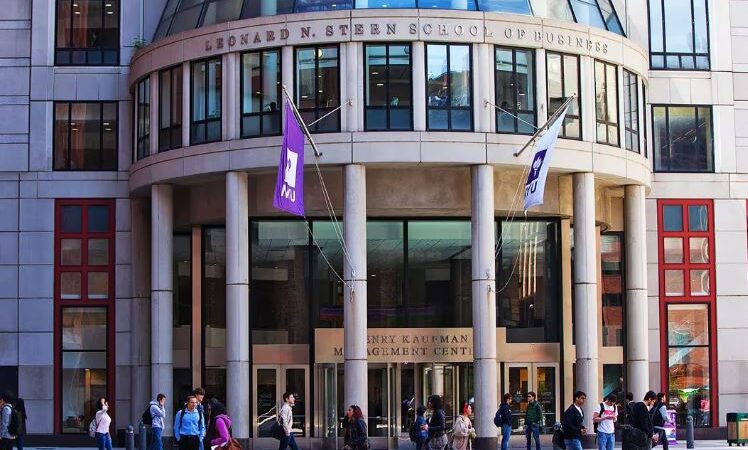Imperial College London: A Beacon of Excellence in Science, Engineering, Medicine, and Business

Introduction
Imperial College London, one of the world’s leading universities, has consistently been at the forefront of research and education since its establishment. Renowned for its emphasis on science, engineering, medicine, and business, Imperial has fostered an environment where innovation and academic excellence thrive. With a rich history, world-class facilities, and a commitment to addressing global challenges, Imperial College London stands as a beacon of excellence in higher education.
Historical Background
Founding and Early Years
Imperial College London was founded in 1907, merging the Royal College of Science, the Royal School of Mines, and the City and Guilds College. These institutions, with their roots in the mid-19th century, came together under the vision of creating a comprehensive college dedicated to advancing science, technology, and their applications. The amalgamation was driven by the need to foster an institution capable of competing with other leading universities globally, particularly in the rapidly advancing fields of science and engineering.
Development through the 20th Century
Throughout the 20th century, Imperial College expanded its academic and research capabilities. The post-World War II era marked a significant period of growth, with new departments and faculties being established to address emerging scientific and technological challenges. The college played a crucial role during the war, contributing to innovations in radar, communications, and materials science.
Transition to a University
In 2007, Imperial College London celebrated its centenary by gaining independence from the University of London, becoming a fully independent university. This transition allowed Imperial greater autonomy to shape its academic programs, research agenda, and strategic direction. The move symbolized Imperial’s commitment to remaining at the cutting edge of science, engineering, medicine, and business education and research.
Academic Structure
Faculties and Departments
Imperial College London is organized into four main faculties:
- Faculty of Engineering: Comprising departments such as Aeronautics, Bioengineering, Chemical Engineering, Civil and Environmental Engineering, Computing, Design Engineering, Earth Science and Engineering, Electrical and Electronic Engineering, Materials, and Mechanical Engineering, this faculty is a hub of technological innovation and research.
- Faculty of Medicine: Renowned for its contributions to medical research and education, the Faculty of Medicine includes departments such as Brain Sciences, Immunology and Inflammation, Infectious Disease, Metabolism, Digestion and Reproduction, Surgery and Cancer, and the National Heart and Lung Institute.
- Faculty of Natural Sciences: This faculty includes the departments of Chemistry, Life Sciences, Mathematics, and Physics. It is dedicated to advancing fundamental scientific knowledge and applying it to address global challenges.
- Imperial College Business School: Focusing on the intersection of business and technology, the Business School offers programs in finance, management, economics, and entrepreneurship, preparing students to lead in a rapidly evolving global economy.
Research Centers and Institutes
Imperial College London is home to numerous interdisciplinary research centers and institutes, which foster collaboration across traditional academic boundaries. Some notable centers include:
- Grantham Institute for Climate Change and the Environment: Focuses on climate science, policy, and sustainable solutions to mitigate and adapt to climate change.
- Institute of Global Health Innovation: Aims to improve health outcomes worldwide through innovative research, technology, and policy.
- Energy Futures Lab: Dedicated to advancing sustainable energy technologies and addressing the global energy challenge.
- Data Science Institute: Promotes the development and application of data science and artificial intelligence across various disciplines.
Academic Excellence
Research Impact
Imperial College London is consistently ranked among the top universities globally for its research output and impact. The university’s researchers are at the forefront of scientific and technological breakthroughs, contributing to advancements in fields such as medicine, renewable energy, artificial intelligence, and materials science.
Teaching and Learning
Imperial’s commitment to academic excellence extends to its teaching and learning environment. The university offers a wide range of undergraduate and postgraduate programs, designed to equip students with the knowledge and skills needed to excel in their chosen fields. Imperial’s emphasis on practical, hands-on learning ensures that graduates are well-prepared to tackle real-world challenges.
Innovation and Entrepreneurship
Imperial College London fosters a culture of innovation and entrepreneurship, encouraging students and researchers to translate their ideas into impactful solutions. The university’s Enterprise Lab provides resources, mentorship, and funding opportunities to support startups and entrepreneurial ventures. Additionally, Imperial Innovations, the university’s technology commercialization company, helps bring groundbreaking research to market.
Global Engagement
International Collaborations
Imperial College London maintains strong partnerships with leading universities and research institutions worldwide. These collaborations facilitate the exchange of knowledge, expertise, and resources, enhancing the university’s global impact. Imperial is also a founding member of the League of European Research Universities (LERU) and the Global Alliance of Technological Universities.
Global Challenges
Imperial is committed to addressing some of the world’s most pressing challenges, including climate change, healthcare, and sustainable development. Through interdisciplinary research and international collaboration, the university seeks to develop innovative solutions that can be implemented on a global scale.
Alumni Network
Imperial’s alumni network spans the globe, with graduates making significant contributions in academia, industry, government, and beyond. The university’s alumni include Nobel laureates, industry leaders, and influential policymakers, reflecting the diverse and far-reaching impact of an Imperial education.
Campus and Facilities
South Kensington Campus
Imperial’s main campus is located in South Kensington, London, a vibrant area known for its cultural and scientific institutions. The campus features state-of-the-art facilities, including modern laboratories, research centers, and lecture theaters. The South Kensington Campus is also home to the Imperial College Library, which provides extensive resources to support teaching and research.
Additional Campuses
In addition to its main campus, Imperial College London has several other campuses and research sites, including:
- Charing Cross Campus: Focuses on clinical and medical research.
- Hammersmith Campus: Home to the Imperial College Healthcare NHS Trust and various medical research facilities.
- Silwood Park Campus: Dedicated to ecological and environmental research.
- White City Campus: A hub for innovation and entrepreneurship, featuring cutting-edge research facilities and incubation spaces for startups.
Student Life
Imperial College London offers a vibrant and diverse student life, with numerous clubs, societies, and activities catering to a wide range of interests. The university’s student union organizes events, provides support services, and advocates for students’ interests. Imperial’s commitment to student well-being is evident in its comprehensive support services, including mental health resources, career counseling, and academic advising.
Notable Achievements
Nobel Laureates
Imperial College London boasts an impressive roster of Nobel laureates among its faculty and alumni. These individuals have made groundbreaking contributions to various fields, including physics, chemistry, medicine, and economics. Some notable Nobel laureates associated with Imperial include:
- Sir Alexander Fleming: Awarded the Nobel Prize in Physiology or Medicine in 1945 for the discovery of penicillin.
- Sir Ernst Boris Chain: Shared the Nobel Prize in Physiology or Medicine in 1945 for his work on the development of penicillin.
- Sir Peter Higgs: Awarded the Nobel Prize in Physics in 2013 for his theoretical prediction of the Higgs boson.
Breakthrough Research

Imperial College London has been at the forefront of numerous scientific and technological breakthroughs. Some recent examples include:
- COVID-19 Research: Imperial researchers played a crucial role in modeling the spread of COVID-19 and developing a self-amplifying RNA vaccine.
- Renewable Energy: Advances in solar cell technology and energy storage systems have positioned Imperial as a leader in sustainable energy research.
- Artificial Intelligence: Imperial’s contributions to machine learning and artificial intelligence are helping to shape the future of technology and its applications.
Industry Partnerships
Imperial College London maintains strong partnerships with industry, facilitating the translation of research into practical applications. Collaborations with companies such as Rolls-Royce, BP, and Microsoft enable Imperial researchers to address real-world challenges and drive innovation. These partnerships also provide valuable opportunities for students to gain industry experience and build professional networks.
Future Directions
Strategic Vision
Imperial College London is committed to building on its legacy of excellence and addressing the evolving needs of society. The university’s strategic vision focuses on several key areas:
- Interdisciplinary Research: Enhancing collaboration across disciplines to tackle complex global challenges.
- Innovation and Entrepreneurship: Fostering a culture of innovation and supporting entrepreneurial ventures.
- Global Engagement: Strengthening international partnerships and addressing global issues through research and education.
- Sustainability: Promoting sustainability in research, education, and campus operations.
Investment in Facilities
Imperial is continuously investing in its facilities to support cutting-edge research and provide a world-class learning environment. Recent developments include the expansion of the White City Campus, which will feature state-of-the-art research facilities and innovation spaces, and the renovation of existing buildings to create modern, flexible learning spaces.
Diversity and Inclusion
Imperial College London is committed to fostering a diverse and inclusive community. The university is actively working to increase representation and support for underrepresented groups in science, engineering, medicine, and business. Initiatives such as scholarships, mentorship programs, and outreach activities aim to create an environment where all students and staff can thrive.
Conclusion
Imperial College London stands as a testament to the power of scientific and technological innovation in shaping the future. With a rich history of academic excellence, a commitment to addressing global challenges, and a vision for the future, Imperial continues to lead the way in higher education and research. As the university looks to the future, it remains dedicated to fostering a culture of innovation, collaboration, and inclusivity, ensuring that it will continue to make a significant impact on the world for generations to come.





